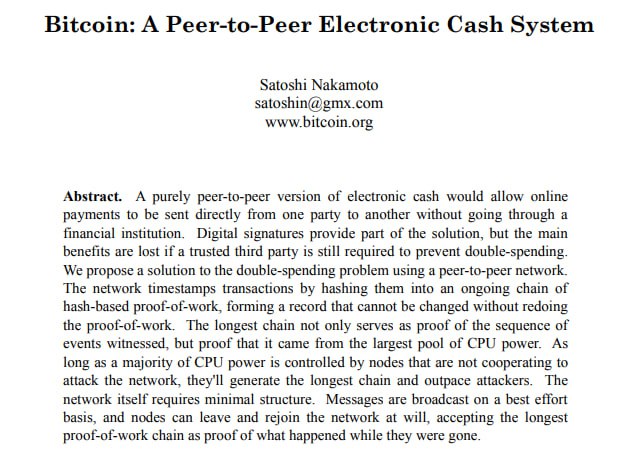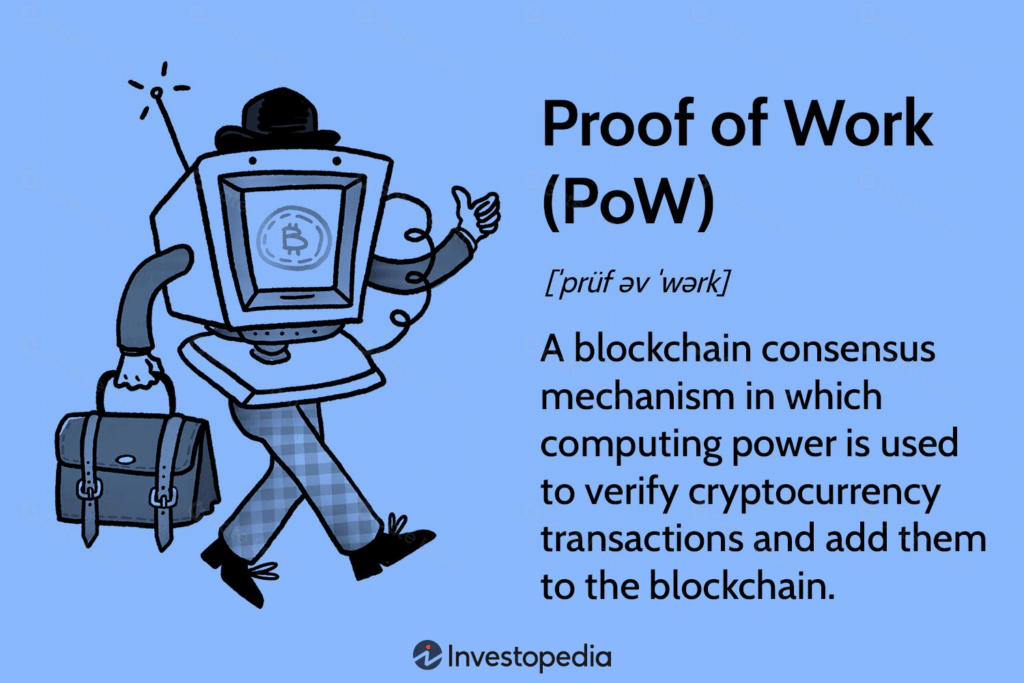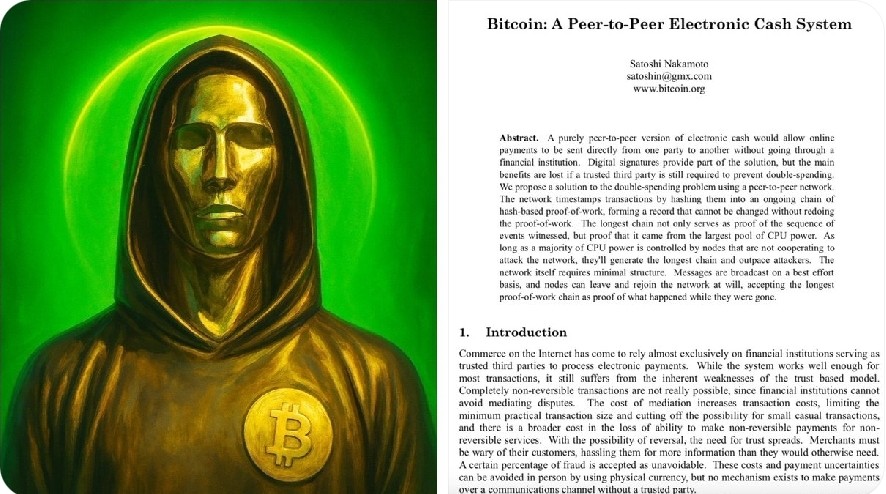📜 October 31, 2008 — a date that entered the history of technology and finance. On that day, the mysterious Satoshi Nakamoto published a document titled “Bitcoin: A Peer-to-Peer Electronic Cash System” — just nine pages of text that forever changed humanity’s understanding of money.

The birth of the digital revolution
In the white paper, Satoshi first described the principles of a decentralized peer-to-peer payment system that doesn’t require intermediaries — banks, governments, or corporations. He proposed using a network of independent nodes that verify transactions and record them in a public ledger — the blockchain.
The key innovation was solving the “double spending” problem — the ability to copy and reuse digital money. Satoshi introduced the Proof-of-Work mechanism, where network participants (miners) verify transactions by solving cryptographic puzzles.

Thus was born Bitcoin — the first cryptocurrency in history and the foundation of an entire industry whose market capitalization now exceeds $3 trillion.
From white paper to blockchain
The publication of the white paper was the first milestone. The second came in January 2009, when the Bitcoin genesis block was launched. The network came to life, and real transactions began. The first person to support Nakamoto’s idea was programmer and cypherpunk Hal Finney. He was the first to run a Bitcoin node and received the first transaction in history — 10 BTC from Satoshi himself.
Finney was not just an enthusiast but a true visionary: even then, he suggested that Bitcoin could reach $10 million per coin. Today, as major funds, banks, and even governments add BTC to their reserves, his words sound prophetic.

Sadly, Hal Finney passed away in 2014, never seeing the full rise of crypto, but his name remains forever in its history.
“Read this document — and you’ll understand everything”
Bitcoin analyst PlanB (creator of the Stock-to-Flow model) reminded followers on social media: “50% of you haven’t read it. Please do it now. It will make you less vulnerable to scammers and those who try to claim others’ work.”

The original document is still publicly available — on bitcoin.org/bitcoin.pdf and in the Satoshi Nakamoto Institute archive.
Those pages contain everything: from transaction mechanics and timestamp servers to the explanation of Proof-of-Work. Reading it today, you realize how revolutionary the author’s vision was — especially considering it was written during the 2008 global financial crisis.
From underground forums to global recognition
The first discussions of Satoshi’s idea appeared on programmer and cypherpunk forums. At that time, it seemed like a futuristic experiment. But only a few years later, Bitcoin became synonymous with digital freedom — and even an official currency in some countries.
Today, it’s accepted by major corporations, and governments are exploring their own digital currencies modeled after BTC. Yet the roots of all this lie in that same white paper published 17 years ago.
Fun fact
U.S. SEC Chairman Gary Gensler — known for his tough stance on the crypto industry — also congratulated Bitcoin on its anniversary. Ironically, he heads the agency that’s still debating whether cryptocurrencies should be classified as securities or a new asset class.

Regardless, the ideas Satoshi Nakamoto outlined have outlived regulators, market cycles, and thousands of altcoins.
🔥 And today, 17 years later…
Bitcoin remains a symbol of independence, the digital era, and faith that technology can be more honest than the system itself.
And those nine pages, written by an anonymous creator, became the foundation of a new financial civilization.
All content provided on this website (https://wildinwest.com/) -including attachments, links, or referenced materials — is for informative and entertainment purposes only and should not be considered as financial advice. Third-party materials remain the property of their respective owners.


